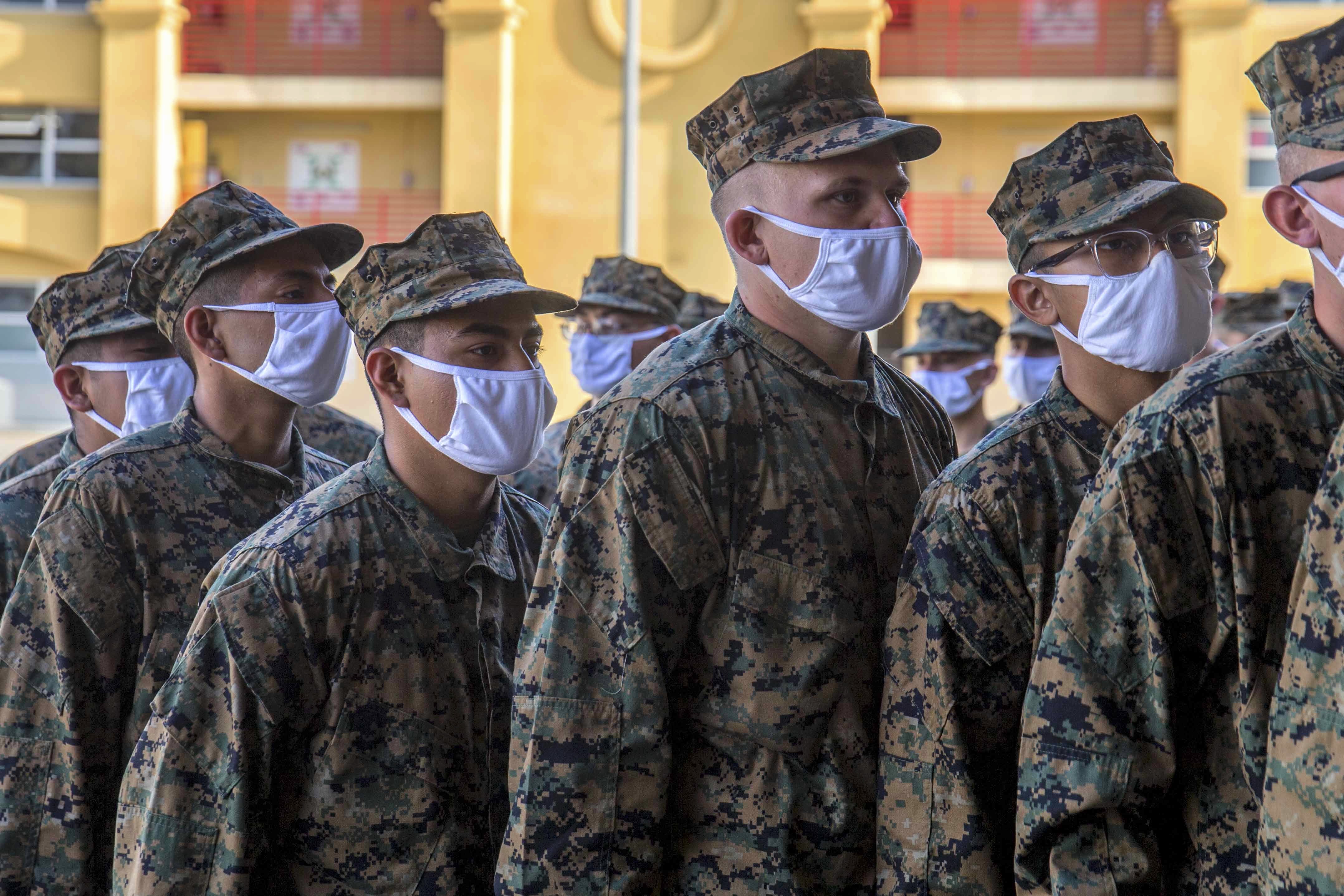
If the commandant of the Marine Corps has focused his attention in his first year on the job tackling a Force Design 2030 effort to reshape how the Marine Corps gears up for a modern battlefield, the next year will focus on the training and manning issues that follow – ensuring the entire man, train and equip portfolio are brought up to date, the head of Marine Corps training said.
“He told us that he’s going to put a lot of effort this year into training and education and into manpower,” Marine Corps Training and Education Command commanding general Lt. Gen. Lewis Craparotta said Sept. 23 during a virtual Modern Day Marine presentation.
“And he’s stated publicly that we have to change our training and education system if we want to redesign the Marine Corps for the future. His commitment to training and education means that we’re going to get resourced to meet the needs to revise training and education.”
Among that resourcing, he said, would be at least $160 million to invest in live, virtual and constructive training systems, as well as range modernizations to allow for more sophisticated force-on-force training and instrumentation to collect data during training events. This funding would start in FY 2022 and continue throughout the five-year Future Years Defense Program.
Craparotta took over TECOM in early August, marking the beginning of TECOM being a three-star headquarters command. It was previously run by a two-star general and fell under the Marine Corps Combat Development Command (MCCDC), which was disestablished as part of the realignment and elevation of TECOM. Craparotta said during his speech that, though TECOM was left as a command rather than made a deputy commandant, the three-star headquarters aligns him with the deputy commandant for combat development and integration and the deputy commandant for manpower and reserve affairs – the man, train and equip trifecta.
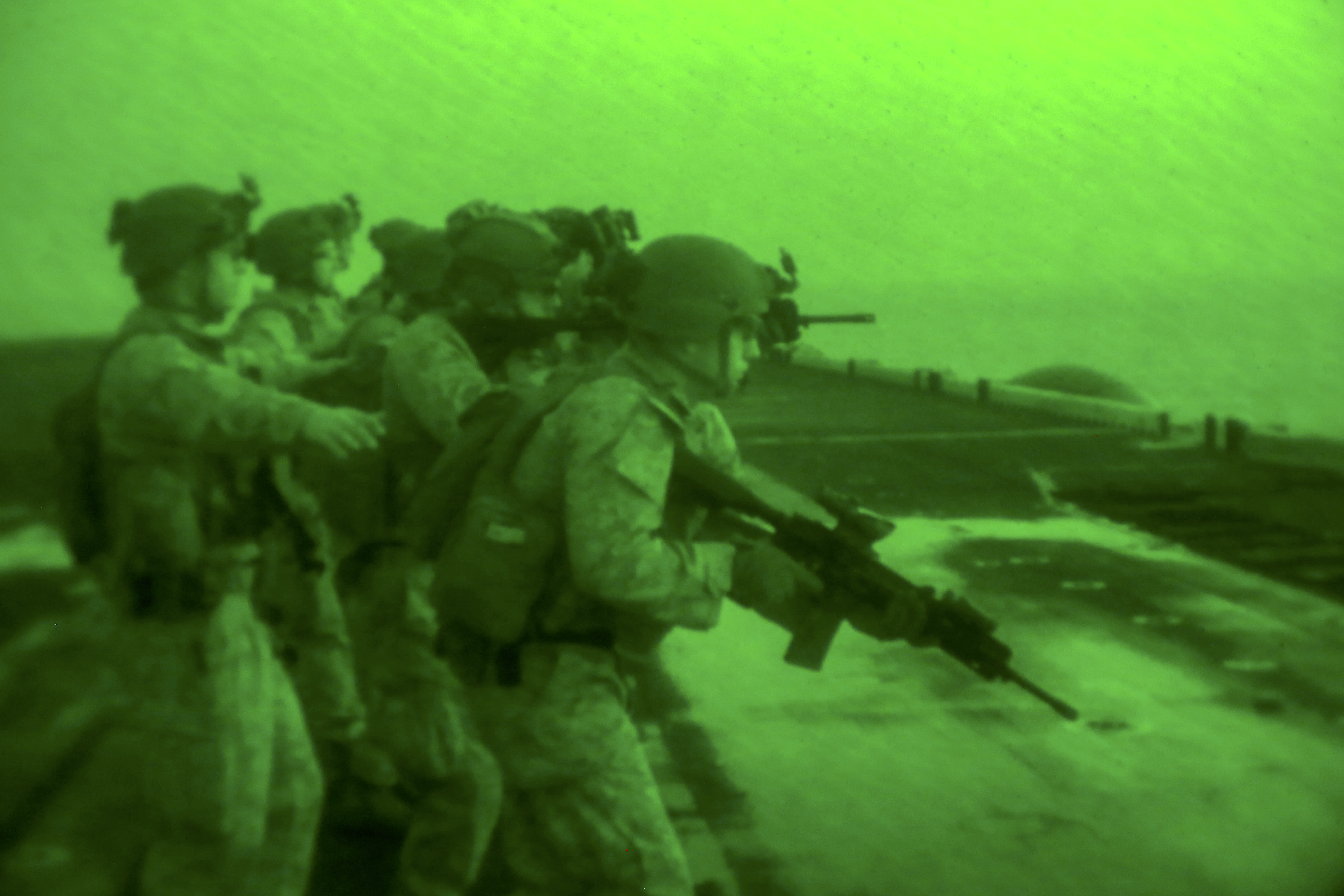
Craparotta said his predecessor, Maj. Gen. William Mullen, had taken the Commandant’s Planning Guidance from last summer and developed a TECOM vision, strategy and campaign plan – with investments running from Fiscal Year 2022 through 2030, when Commandant Gen. David Berger hopes to complete the Marine Corps transformation – with a goal of “transforming TECOM to a 21st-century learning organization.”
Noting that he had rewritten the TECOM mission statement to reflect that “training and education is all designed across the continuum to build or help build combat readiness,” Craparotta said that every subordinate command was already taking steps to align to the new mission and campaign plan.
In basic training, the two Marine Corps Recruit Depots are refining the Crucible, the culminating event at training, and continuing with gender integration. At military occupational specialty (MOS) schools under Training Command, “we’ve focused on increasing online capacity – part of that a result of COVID – but it’s also helped us to keep the Marines awaiting training busy, and we’re looking at the best ways to reduce Marines awaiting training at our formal learning centers. We’re adjusting our teaching methodologies to focus on outcome-based learning and working to strengthen and sustain what we envision to be a professional instructor cadre, and we’re developing a persistent learning environment with virtual content and access 24 hours a day.”
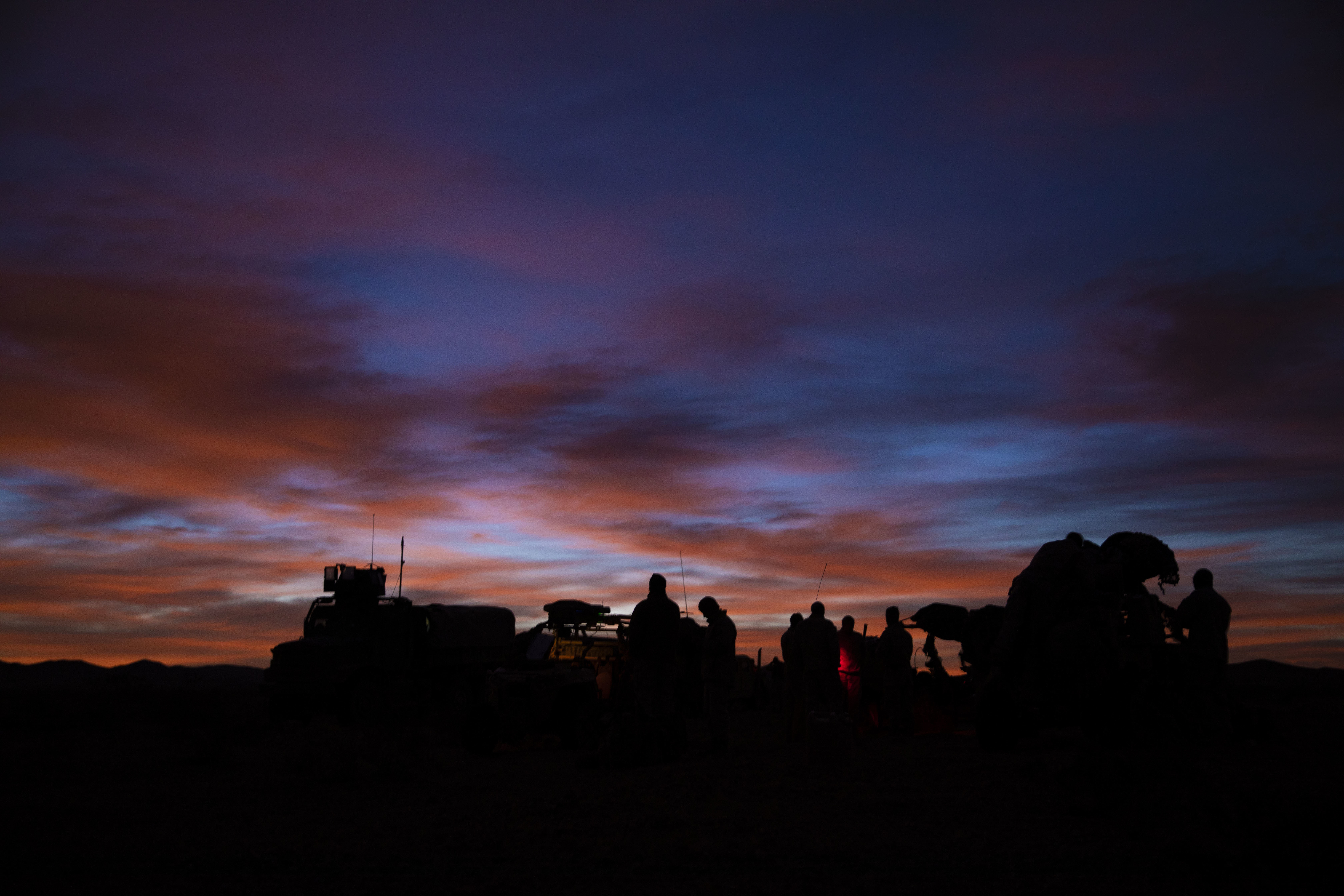
At the Marine Corps University and the Education Command, research is focused on cyber and operations in an information environment; the professional military education curriculums for officers and enlisted Marines are being modernized; and an emphasis on wargaming as an educational tool is bringing more opportunities to students, rather than just conducting wargames to wring out potential future concepts.
The Marine Air-Ground Task Force (MAGTF) Training Command has revamped training at Marine Corps Air Ground Combat Center Twentynine Palms, Calif., to include more force-on-force events, a better focus on peer adversaries, increased usage of cyber and electronic warfare attacks during training events, and a more challenging five-domain battlefield, Craparotta said. Money will be invested in adding further instrumentation to these ranges for assessment and after-action reports afterwards – which the general said would be an ongoing focus for TECOM, reevaluating how they write after-action reports and ensuring that the Marines can better track trends over time.
With those recent improvements as his starting point, Craparotta said, “we’ve laid out investments, we’ll continue to refine those investments over time to ensure that we can demonstrate to the commandant meaningful progression over the course of this extended timeline” through 2030.
“All this will continue as we look to, again, what’s defined perhaps as the end state of 21st-century learning and critical capabilities associated with that over the 10-year time horizon. So there’s a lot going on, there’s a lot to do, and what we do here at TECOM and across the entire enterprise will be aligned with combat readiness and our ability to fight and win today and in the future.”
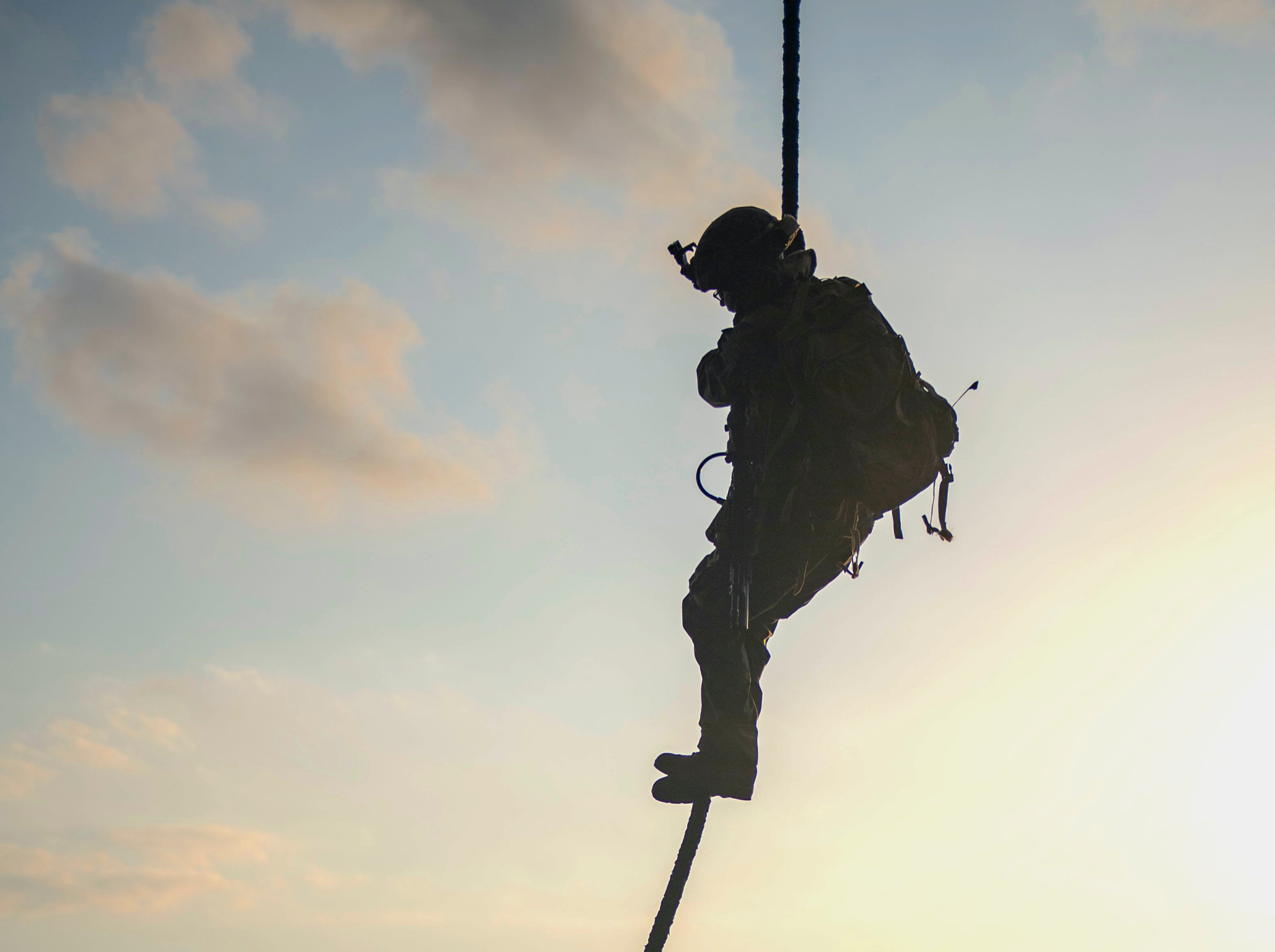
During the Modern Day Marine event, Craparotta was asked how training had been affected by the coronavirus pandemic. He said the biggest change was the need for poolees to do a 14-day restriction of movement (ROM) ahead of coming into boot camp, and a bit of rescheduling that allows them to stay inside a protected bubble all throughout early training, with the new Marines not getting any leave time until after they finish MOS school and are ready to report to their first duty stations.
In the initial challenge to figure out how to work the ROM – where to house incoming poolees, how to feed them, how to keep them busy during these two weeks – “it created an opportunity, I think, for us to put more content, more training capacity online, so that if you’re an officer candidate in ROM or a recruit in ROM that you had some virtual capacity to study your knowledge, if you will.”
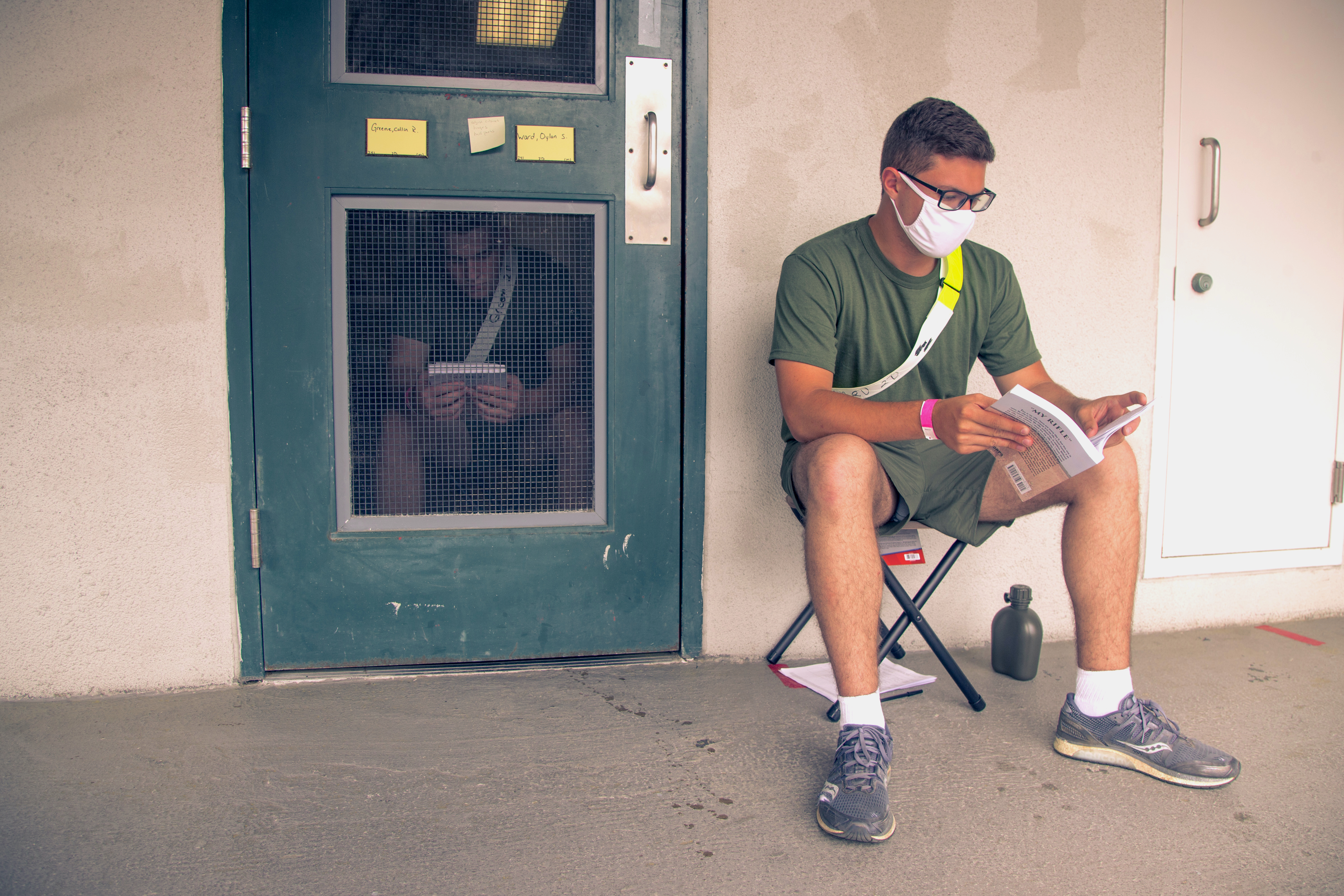
Though the ROM and the online learning were borne of necessity, Craparotta said there have been other benefits and that it might just stick beyond the COVID pandemic.
“Perhaps at some point when we don’t have to do ROM anymore, we’ll keep those lessons. There may be a point in time where you’re doing some of this stuff as a poolee before you ever show up at boot camp or as an officer candidate before you ever show up at OCS, which will allow us to take advantage of what you already know when you do hit the training environment,” he said of the online learning piece.
As for the ROM, he said that it’s proven beneficial to have young men and women adjust to being away from home, living with a roommate, having a daily routine dictated by the Marine Corps and more before they show up at boot camp and have all the stresses that come with drill instructors and strenuous physical training.
“You’re getting your sea legs, perhaps, for lack of a better term, underneath you while you’re in ROM, and I think we’ve seen some benefit to that in the last few months.”





